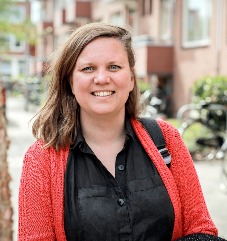Opinie| Beperkte keuze staat verduurzaming in de weg

Foto: Henk Veenstra
Het kabinet verhoogde de afgelopen jaren de energiebelasting voor aardgas en verlaagde die voor elektriciteit. De overheid wil hiermee stimuleren dat huishoudens vaker kiezen voor elektrische warmteopties, zoals warmtepompen, of elektrisch koken. Mooi idee, maar, zegt Marlies Hesselman, docent Internationaal Recht, we moeten opletten dat iedereen mee kan blijven doen. Want wanneer het om energie gaat, gaat het niet om de keuzes die mensen wíllen maken, maar om de keuzes die mensen kúnnen maken.
Opgetekend door Marrit Wouda, Corporate Communicatie RUG
Voorwaarden voor een menswaardig bestaan
‘Nederland erkent, als EU-land en VN-lid, verschillende mensenrechtenverdragen. Die verdragen noemen bijvoorbeeld de rechten op gezondheid, huisvesting, en onderwijs. Kort samengevat: alles wat een bestaan menswaardig maakt. Voldoende toegang tot energie hoort daar ook bij: wanneer we in die behoefte niet kunnen voorzien, door torenhoge kosten, worden onder andere deze mensenrechten geraakt. De overheid heeft de plicht om te zorgen dat iedereen in de noodzakelijke energiebehoefte kan voorzien. En wanneer mensen dat zelf niet kunnen, en daardoor niet goed mee kunnen doen in de maatschappij, moet de overheid ingrijpen.’
Ongezond besparen
‘Tijdens de energiecrisis zijn mensen doelbewust energie gaan besparen, maar niet altijd op een gezonde manier. Zo verwarmen sommige mensen hun huis alleen als er bezoek is, of zetten ze de thermostaat standaard op 16 graden. Dat levert inderdaad een energiebesparing op, maar vergroot ook het risico op schimmel en gezondheidsproblemen. Bovendien: de gezinnen waar nu bespaard wordt, zijn niet de grootste vervuilers in de klimaatcrisis. Dat maakt deze besparing naast ongezond, ook nog eens oneerlijk en bovendien geen vrije keuze.’
Adequate hulp
‘De regering gaat ervan uit dat energiearmoede onderdeel uitmaakt van gewone armoede, en daarmee vooral lage inkomens treft. Maar dat klopt niet. Ook mensen met hogere inkomens lopen risico omdat ze afhankelijk zijn van een huurbaas of niet het geld hebben om een grote financiële investering te doen om hun huis energie-efficiënt te maken. Het is een goed idee om bij te springen bij een hoge rekening, maar als die rekening hoog is omdat een huis slecht geïsoleerd is, is het misschien beter om te zorgen voor een adequaat huis.’
Stel mensen in staat tot een duurzame keuze
‘En dat is waarmee we terugkomen bij de energietransitie. Er zijn veel potjes die mensen kunnen aanspreken om hun huis te verduurzamen. Maar wie kan dat? Vaak niet de mensen die het meest onder de hoge energiekosten lijden. Het zijn de mensen met een eigen huis en die de investeringsruimte hebben om hun huis te isoleren, van het gas af te gaan en een warmtepomp te installeren. De mensen die de verduurzaming van hun huis het meeste nodig hebben, en daarbij ook financiële steun kunnen gebruiken, kunnen lang niet altijd kiezen voor subsidies omdat de ze niet kunnen voldoen aan de voorwaarden, zoals het voorschieten van de kosten van werkzaamheden of het leveren van een (kleine) eigen bijdrage. Het is goed dat de overheid mensen wil stimuleren om duurzame keuzes te maken. Maar dan moeten ze wel wat te kiezen hebben.’
Meer nieuws
-
08 december 2025
Kleurrijke Kopstukken: Bert Röling
